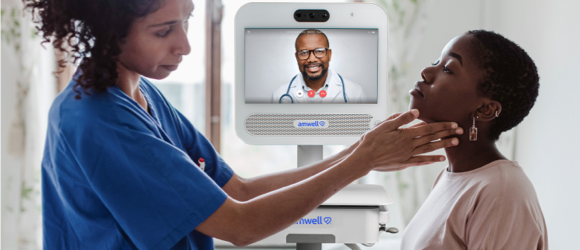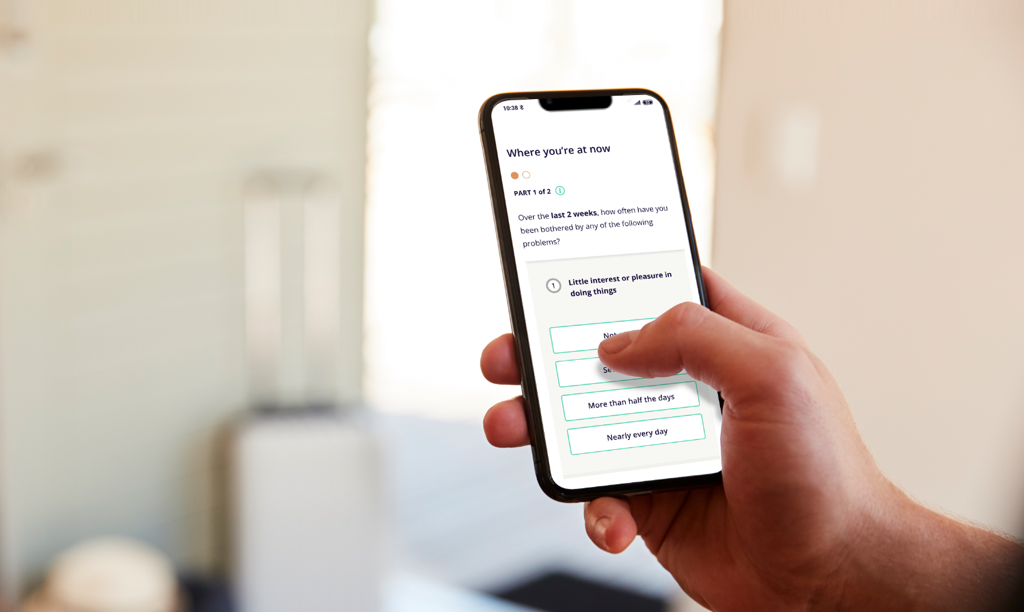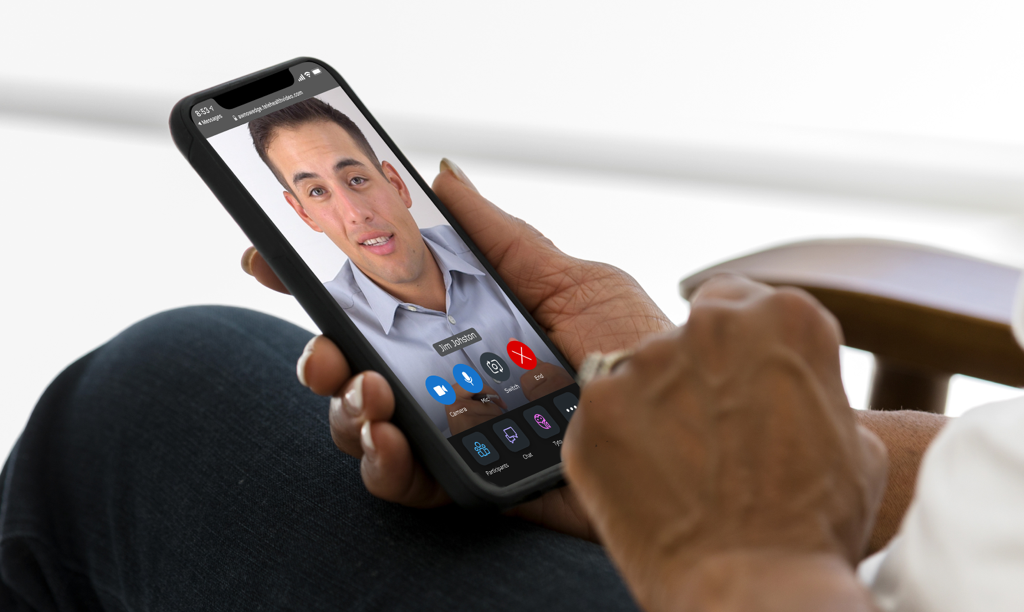Care anywhere, through a single platform and partner
We partner with leading healthcare organizations, health plans, and technology innovators to advance digital health strategies today and in the future.
Amwell Converge™ platform offers a seamless digital experience that integrates in-person and virtual care, featuring automated chat guidance and digital programs for continuous care.

We partner with leading healthcare organizations, health plans, and technology innovators to advance digital health strategies today and in the future.
Boost efficiency, decision-making, and outcomes by connecting your clinical network with collaborative virtual care support to empower your care team and providers.
Seamlessly link patient health data throughout their care journey to gain a comprehensive view, enabling informed decisions, personalized care plans, and improved outcomes.
Improve provider, care team, and patient experiences with EHR-integrated workflows that smooth the shift between in-person and virtual consults, facilitating easy access across your clinical network.

At Amwell, we integrate in-person, virtual, and digital care to transform care delivery beyond episodic transactions. Our hybrid care approach seamlessly connects care teams, health data, and solutions to simplify patient experiences, enhance care quality, and improve outcomes. Follow James through his journey with congestive heart failure and discover what hybrid care innovation can do for your patients.

Transform existing technologies, operations, and workflows to enhance support for your nurses.

Connect with patients in one click directly from your EHR and engage with them pre- and post-visit.

Attract and triage new and existing patients by providing accessible, immediate virtual care that can flex to meet your needs.

Our self-guided and coached evidence-based digital wellbeing programs offer patients support in strengthening their mental health and wellbeing between visits.

Amwell Automated Care Programs extend the care connection between visits, using intelligent, clinically-based conversations and a next-best-action decision engine.

Bring specialty care to every facility and enable provider-to-provider interactions to enhance collaboration.

Explore Amwell solutions that can help you address social determinants of health (SDOH) through enhanced access, whole-person care, and affordability options.
in the U.S.
of virtual care and digital health experience
on the Converge platform

The Amwell Converge platform has provided our clinics with a virtual visit platform designed for healthcare which integrates with the electronic health record for an enhanced patient and clinician experience. We are pleased to partner with Amwell to deliver virtual visits to our patients at the moment this care is needed.
In collaboration with Amwell, we’ve developed a text-based program out of Amwell’s suite of automated care programs. It’s a chat functionality and you don't need to download an app, which we know is a barrier for a lot of patients. This is a way for us to check in on our patients with frequency without taking a staff member to do it.
I'm working with patients that may be experiencing suicidal ideation. I have to show that I'm keeping them just as safe as I would as if they were sitting across the table for me. [I can do that with] the Amwell Converge platform. If I have someone that I feel is not safe, I can use that pop out screen [to remain on screen with them] while also seeing their address. I can send help to them right away, and I never have to stop the care. Then because I’m in the EMR, I can see when they've actually arrived safely in the emergency room.

To help address a shrinking workforce and provider burnout, St Luke’s University Health Network partnered with Amwell to offer Amwell’s digital mental health programs to its employee population.

We talk with Dr. Zenobia Brown, senior vice president and associate chief medical officer at Northwell Health, about the best strategic opportunities for between-visit care.

In this whitepaper, we share six ways virtual and automated care can help your health system deliver better behavioral healthcare while also saving on avoidable costs.